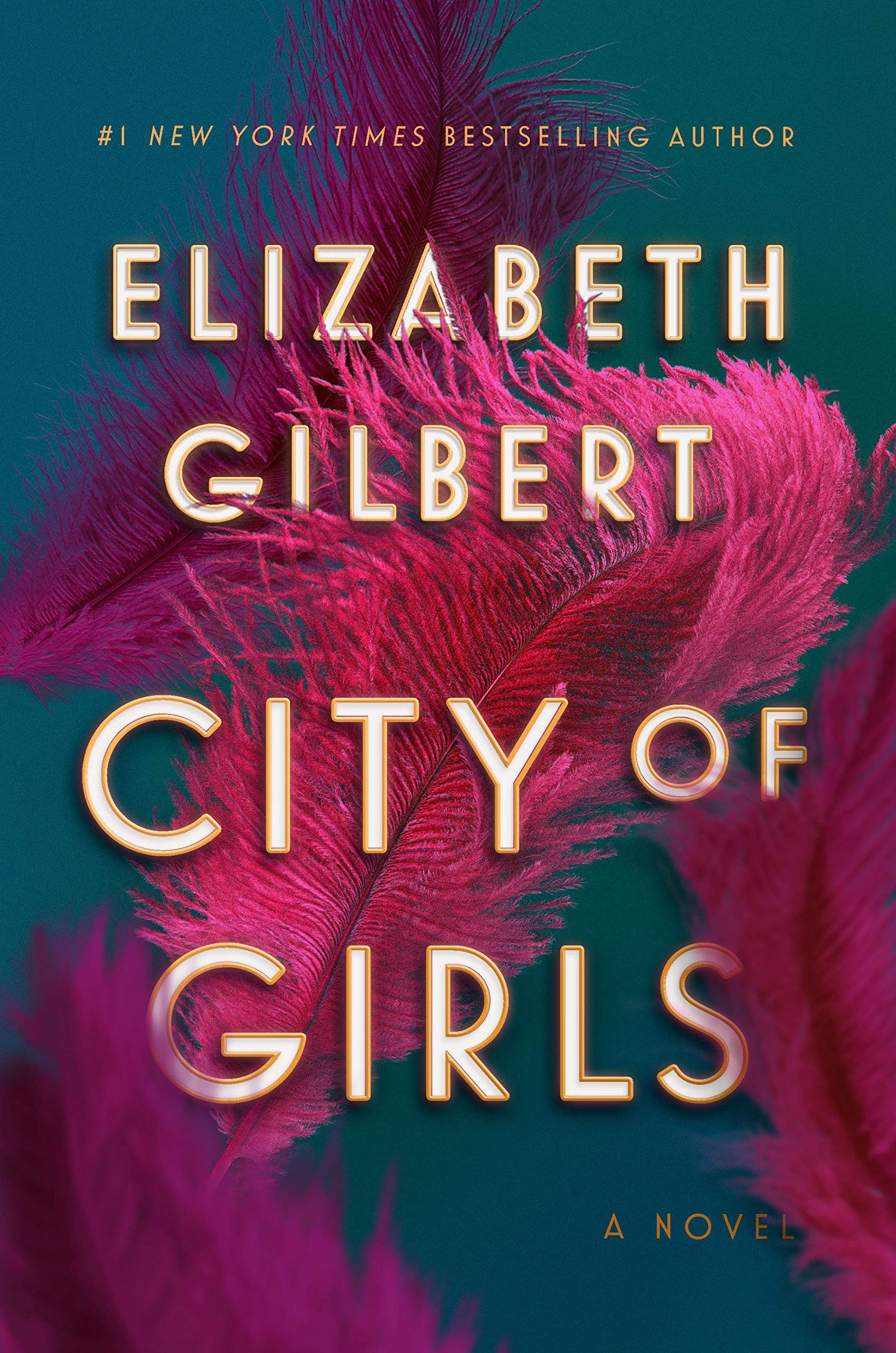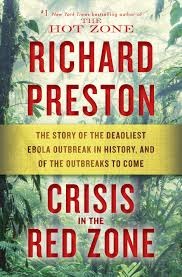"A man ought to read just as inclination leads him, for what he reads as a task will do him little good."—Samuel Johnson
| Reviews | Limericks | Six Words | Buy Nothing |
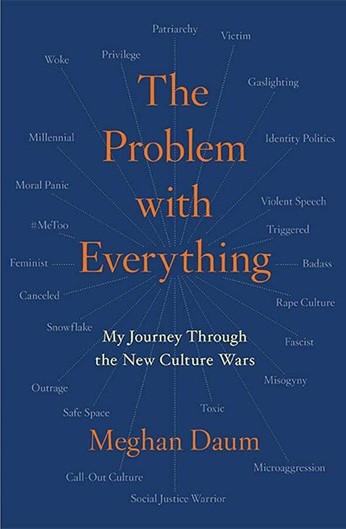 30 December 2019
30 December 2019
The Problem With Everything: My Journey Through the New Culture Wars
Meghan Daum
Despite the author's insistence that this is not collection of essays, it is exactly that, centered around one very vague theme (see the title). A longtime feminist, Daum originally intended to write a takedown of contemporary feminism, which she seems to think is just "male tears" coffee mugs. Daum values toughness over fairness, which she ascribes to being a GenXer rather than a millennial. So rather than being threatened by silly merchandise, maybe she should toughen up? Daum wanted to call her book "You are not a badass," but then spends quite a bit of time telling us what a badass she was as a twentysomething who gave the finger to catcalling construction workers. She seems to agree with a man who told a female corporate colleague who found ejaculate on her desk to "just change chairs and move on," although she hems and haws over it a bit. She can see more than one side of the issue. That is not a bad thing. In fact, more nuance is exactly what she is calling for. But she is also intent on characterizing "contemporary feminism" (as if there is a feminist headquarters setting an agenda) as all about victimhood, and falls into the age-old trap of blaming women for speaking up about sexism and misogyny. That's the constant tension of being a woman: if you pointed out sexism every time you encountered it you'd lose both your audience and your mind. Yes, as Daum says, the homeless man who harasses a businesswoman on the street is not "part of the patriarchy," but no thinking person can deny that sexism is a factor in that interaction. It seems to me that this is a perfect example of intersectionality, and it's that complicated intersection that is interesting. That intersection is also why bashing white women is so popular: you can indulge in misogyny while telling yourself you're being anti-racist. But back to this book. The best parts are her proud identification with Generation X. She is grateful to have grown up in the less gendered age of Zoom!, with tomboy/lesbian role models like Kristy McNichol (and don't forget Leather Tuscadero!). And she laments being at the end of a dividing line between the analog world and the digital, to be an adult that the younger generation doesn't relate to. It's a little like being a time traveler, having lived as a relatively young adult in both the old world and the new. Daum's sharp appraisal of the world through a personal lens will always keep me coming back to her work.
As for the rest of 2019, it seemed that most books I finished and enjoyed were about what I expected them to be, and many of them got plenty of attention without my help.
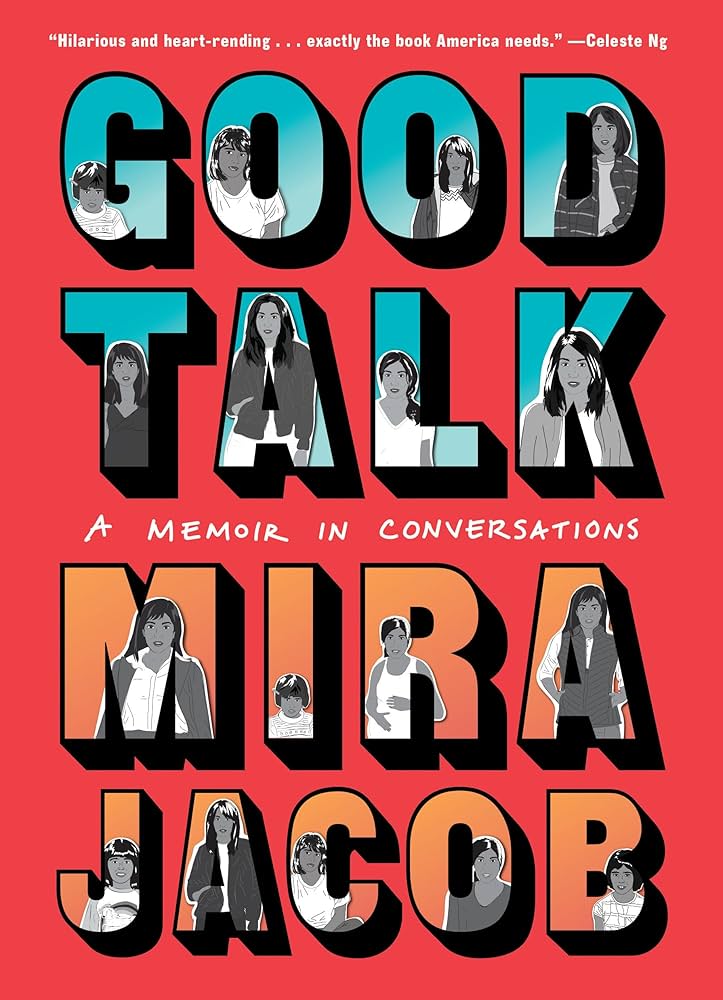 Good Talk: A Memoir in Conversations
Good Talk: A Memoir in Conversations
Mira Jacob
Speaking of intersectionality, this book is an example of how what should be an intricate web is flattened into a ladder. The book is sort of a graphic novel, but from the cut and paste zine school; she's not an artist. It's conversations with her son, husband, parents and inlaws, mostly about race, reminscences
about her past and various "microaggressions," and lots of tossing around accusations of racism. Here's a sample: she recalls a time as a teeenager when she assumed a young black man in her friend group* wouldn't know that a cardiologist was a "heart doctor." On the very next page, she explains to her son that a black or brown person in America (like them) can't be racist, because "we don't have the system." Good to know.
*why did people suddenly start talking about "friend groups"? No one used to say this.
 30 December 2019
30 December 2019
City of Girls
Elizabeth Gilbert
The Dutch House
Ann Patchett
Fleishman is in Trouble
Taffy Brodesser-Akner
For novels there was City of Girls, set mainly during the second world war and stuffed with glamorous clothes and exuberant sex, and The Dutch House, where the characters (a fractured stepfamily) and the author alike lavish all their loving attention on the titular house. Neither book tries to wrestle with anything too complex, but their writers' total control of the material and mastery of the form is what delivers the pleasure. Fleishman is in Trouble takes more risks in an account of the marital meltdown of a pair of wealthy Manhattanites. It's very much of a certain world and the present moment, but that world and time are well-observed and the compulsive page-turning pays off when we learn that things are not always what they seem. The problem is that Brodesser-Akner has a Caitlin Flanaganesque misogynist streak, in both this book and her other writing. Her piece about 90s phenomenon The Rules is contemptuous of the dumb women who think they need them, who can't just find a man who will love them for who they are, like she has. In this book, her male character meets a woman on a dating app who wants to sleep with him, so she's obviously pathetic (and hairy-armed, besides). "Sex shouldn't be this easy," he says. Right, men are the gas and women are the breaks. It's textbook slut-shaming, in a novel that purports to take a woman's point of view.
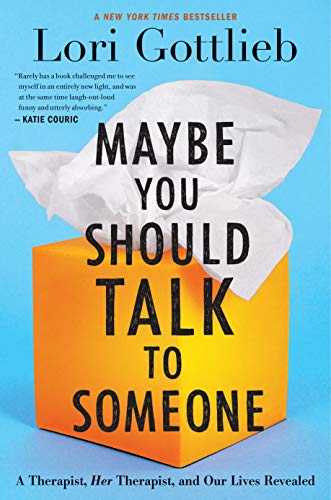 30 December 2019
30 December 2019
Maybe You Should Talk to Someone: A Therapist, Her Therapist, and Our Lives Revealed
Lori Gottlieb
Gottlieb wrote Maybe You Should Talk to Someone when she, a therapist blindsided by a bad breakup, seeks her own therapist. Along with her own story of counseling she shares those of four of her patients who, she takes pains to point out, have had their characters and stories greatly altered to protect their identities. So when they seem far too pat and cliched to be real, it seems obvious that it's because they are fictional creations. The book offers some insights about intimacy, but the way each story neatly illustrates a point undermines the project.
 30 December 2019
30 December 2019
On the Clock: What Low-Wage Work Did to Me and How It Drives America Insane
Emily Guendelsberger
On the Clock is a journalist's account of her stints doing low-wage jobs at Amazon, a call center, and McDonald's. Major props to Guendelsberger for actually walking the walk, compared to Barbara Ehrenreich who, in Nickel and Dimed, decided to provide herself with a car on top of what he earned in her housecleaning work, and to make regular visits home to keep up with her real life as a successful professional. Guendelsberger, in contrast doesn't see her husband for weeks at a time and actually lives in her car at one point. Her writing is especially powerful on the way that poverty grinds you down, as in her account of deciding not to offer a coworker standing at a bus stop a ride home because she wanted so badly to get to her own home (or, rather, a friend's relative's couch, where she's crashing).
 30 December 2019
30 December 2019
Crisis in the Red Zone:The Story of the Deadliest Ebola Outbreak in History by Richard Preston, and of the Outbreaks to Come
Richard Preston
Antisocial: Online Extremists, Techno-Utopians, and the Hijacking of the American Conversation
Andrew Marantz
Crisis in the Red Zone and Antisocial were each distressing in their own way, about a little understood virus that has gotten out of control, that we haven't figured out a way to deal with, and that could potentially destroy us. Preston has a knack for ending each chapter on a cliffhanger in his story of the scientists, doctors and others who risk their lives fighting Ebola, including one whose death could have been prevented. Marantz is a The New Yorker writer who embedded himself with white nationalists, the red-pilled alt-right, and their ilk. He shows us that Nazis aren't uniformed figures from a remote past, that they could be any of us, and thanks to online hyperoconnectivity that hit us faster than we could figure out how to absorb and manage it, there are more of them all the time.
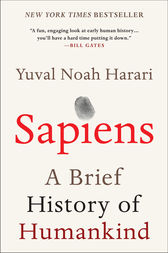 30 December 2019
30 December 2019
Sapiens: A Brief History of Humankind
Yuval Noah Harari
Sapiens was the best book I read this year. It begins before we do, with our prehuman ancestors, and takes us all the way to the present. Humans are astonishingly clever but a threat to our planet, to the other creatures on it, and most of all to ourselves. When we're not destroying the wondrous Australian megafauna we're coming up with the agricultural revolution, a wrong turn that brought us the marvels of the modern world as well as its attendant miseries, or the internal combustion engine, which has wrecked our cities. Harari gives you something to think about on every page, showing that heterosexism is entirely a human invention ("Biology enables, culture forbids") and that sexism, which is found in every human culture, has no clear explanation. Where humans are truly equal is in their capacity for oppression: every culture that we celebrate as the authentic expression of an persecuted people was at one time the conqueror of someone else.
"There was so much to read, for one thing, and so much fine health to be pulled down out of the young breathgiving air...I was rather literary in college—one year I wrote a series of very solemn and obvious editorials for the Yale News—and now I was going to bring back all such things into my life and become again that most limited of all specialists, the 'well-rounded man.' This isn't just an epigram—life is much more successfully looked at from a single window, after all."—F. Scott Fitzgerald, The Great Gatsby
Copyright © 1996–2026 So Much to Read
Contact: books at so much to read dot com
